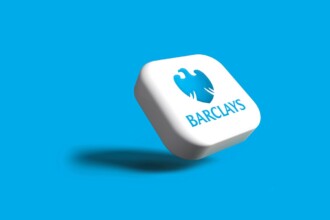The development of generative AI tools is taking great strides at the peak of the popularity of OpenAI’s ChatGPT. Here are the last updates on the technology

Image: pixabay.com
While the new models and use cases for generative AI technology spring up as mushrooms, the creator of the famous ChatGPT tool is facing a major regulatory challenge, as Italian authorities give the company a deadline until April 30 to comply with local and European data protection and privacy laws.
How can ChatGPT avoid the ban?
Earlier this month, Italian data protection agency Garante restricted the use of the chatbot and launched an investigation into possible violations of privacy rules. The action resulted from a data breach revealing ChatGPT and GPT API customer-generated data to be seen by other users.
Although Italy was the first country to ban ChatGPT, French, German, Irish and EU regulators are also currently considering action to regulate ChatGPT. Additionally, the Chinese Payment Association warned against the dangers of generative AI, in the light of ChatGPT data leaks.
To remedy the restrictions, OpenAI has to comply with a set of regulations, including the EU’s General Data Protection Regulation (GDPR). This requires implementing age verification measures, informing users about how their data is used, receiving explicit user consent to train AI products with personal data, ability to opt out of data collection and sharing, etc.
Experts believe such compliance would be hard to achieve from a technical standpoint since OpenAI models are trained on massive data chunks conflated into training sets. So-called black box training aims to create a paradigm called “emergence,” where useful traits manifest unpredictably in models.
While being useful for AI training purposes, such a mechanism doesn’t disclose which data belong to a particular set. Moreover, the data gets amalgamated so that it’s too challenging to extricate or modify individual pieces of data.
OpenAI said it removed sensitive information from its datasets where possible and configured the models to reject requests for such data. The company also intends to send the agency a document on measures to respond to its legal requests.
However, Lilian Edwards, an internet law professor at Newcastle University, explained in MIT’s Technology Review that the violations are so significant the case will likely wind up in the EU’s highest court, the Court of Justice.
New open-source alternative to ChatGPT
Meanwhile, Stability AI, the creator of a popular image-generation tool Stable Diffusion, announced the launch of StableLM, a suite of open-source large language models. Its publicly available alpha version is trained on a new experimental dataset.
According to the creators, “The richness of this dataset gives StableLM surprisingly high performance in conversational and coding tasks, despite its small size of 3 to 7 billion parameters.” To compare, OpenAI’s GPT-4 has a parameter count estimated at 1 trillion, and even its predecessor, GPT-3, had higher indicators.
Subject to scrutiny and testing, StableLM open-source models could have interesting use cases for the cryptocurrency trading world, if proven successful. They might become a free alternative to GPT API and new variants that incorporate third-party-tool access, such as BabyAGI and AutoGPT, that come with OpenAI’s access premiums. Currently, traders use these tools to create advanced trading bots.
Increasing use cases for Generative AI
While open-source alternatives present new opportunities, retailers rush to employ already tested and popular ChatGPT tools to engage customers and increase conversion rates.
Recently, Mercari marketplace introduced a new function enabling customers to engage in real-time conversations with the virtual ChatGPT-powered shopping assistant and receive product recommendations.
Similar experience is provided by Swedish fintech Klarna that allows customers to request shopping ideas from ChatGPT, receive product recommendations, and send additional requests to the chatbot for more detailed product data, if necessary. Customers can then click on a link that will take them to the product page in the Klarna search and comparison tool.
The travel booking platform Expedia has also added the ChatGPT function to its bot for clients to get AI-enabled recommendations on destinations, hotels, transportation, and leisure activities.









